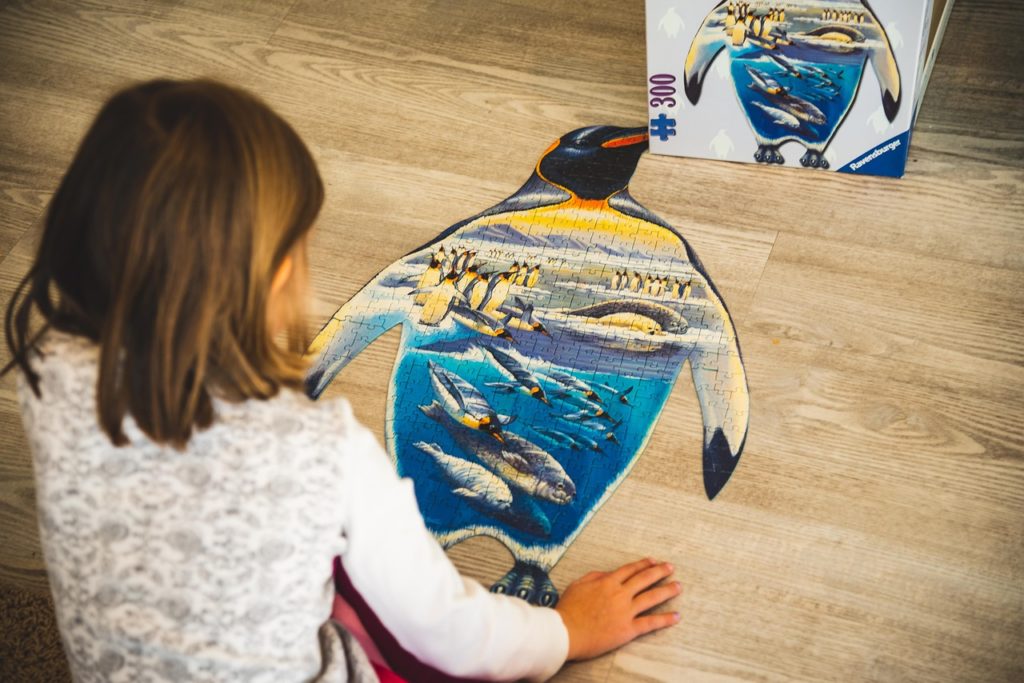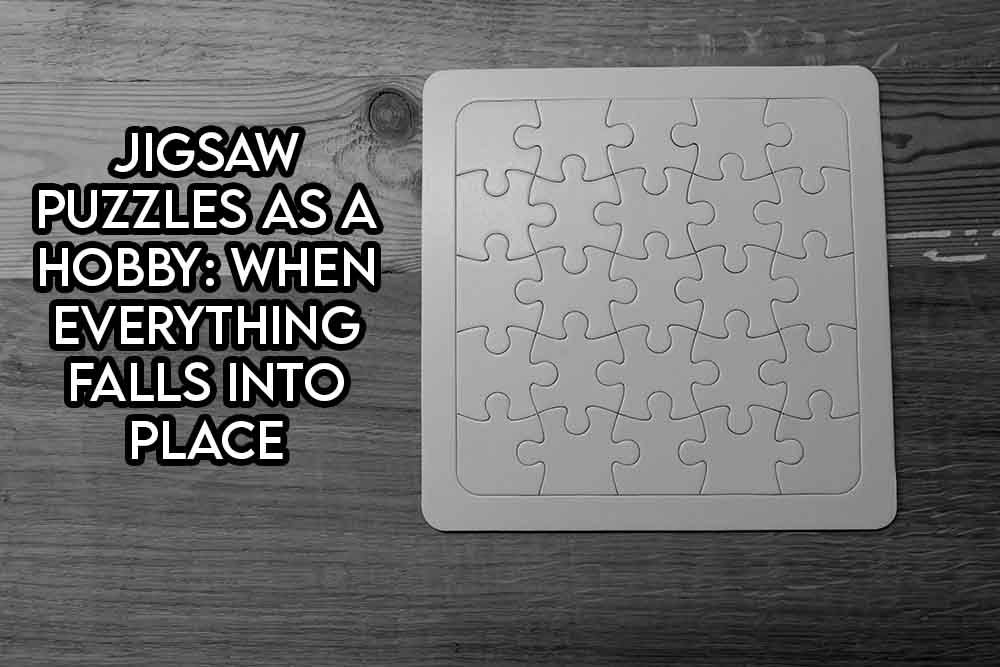An Overview of Jigsaw Puzzles as a Hobby
Jigsaw puzzles have long been a popular hobby for people of all ages. There’s something satisfying about taking a pile of seemingly random pieces and fitting them together to create a beautiful, cohesive image. Whether you’re a seasoned puzzle enthusiast or just starting out, here are a few reasons why jigsaw puzzles make for a great hobby.
First and foremost, jigsaw puzzles are a great way to relax and unwind after a long day. As you piece together the different shapes and colors, you’ll find yourself entering a state of flow, where the outside world fades away and you can focus on the task at hand. This can be especially beneficial for those who struggle with anxiety or stress, as puzzles can provide a sense of accomplishment and control.
Jigsaw puzzles are also a great way to exercise your brain. As you look for the right piece to fit into a particular spot, you’re engaging your spatial reasoning and problem-solving skills. Research has even shown that doing puzzles can help improve memory and cognitive function.
One of the great things about jigsaw puzzles is that there’s a wide range of difficulty levels to choose from. Whether you prefer 500-piece puzzles or more challenging 1,000- or 2,000-piece puzzles, there’s a puzzle out there that’s perfect for you. And if you find yourself getting stuck, there are plenty of resources available online to help you out, including forums, blogs, and video tutorials.
In addition to the personal benefits of doing jigsaw puzzles, they can also be a great way to connect with others. Whether you’re working on a puzzle with friends or family or joining a puzzle club or online community, puzzles can be a social activity that brings people together.
So if you’re looking for a new hobby that’s relaxing, brain-boosting, and potentially social, give jigsaw puzzles a try. You might be surprised at how much you enjoy it!
What is the best way to solve a Jigsaw Puzzle?
There are a few different strategies that can be helpful when it comes to solving jigsaw puzzles. Here are a few tips:
- Start with the edges: Many puzzles will have a border piece or frame that you can use to establish the outer edge of the puzzle. Once you’ve placed these pieces, you’ll have a better sense of the overall shape and layout of the puzzle, which can make it easier to find the rest of the pieces.
- Sort the pieces by color or pattern: Another helpful strategy is to sort the pieces by color or pattern. This can make it easier to find the pieces you need, and can also help you identify areas of the puzzle that still need to be filled in.
- Work from the center out: Once you’ve placed the outer edges of the puzzle, you can try working from the center outwards. This can help you establish the overall shape and layout of the puzzle more quickly.
- Take breaks: If you’re working on a particularly challenging puzzle, it can be helpful to take breaks every so often. Stepping away from the puzzle for a few minutes can help you come back with fresh eyes and renewed focus.
- Get help if you need it: If you’re really struggling to solve a puzzle, don’t be afraid to seek help from others. There are plenty of online resources available, including forums, blogs, and video tutorials, that can provide tips and tricks for solving puzzles. Additionally, working with a friend or family member can often make the process more enjoyable and help you stay motivated.
What types of people enjoy jigsaw puzzles?
Jigsaw puzzles can be enjoyed by people of all ages and walks of life. Some people enjoy puzzles as a relaxing hobby, while others find them to be a challenging mental exercise.
Puzzles can be particularly popular with seniors, as they can help keep the mind sharp and provide a sense of accomplishment. They can also be a great activity for families to do together, as they can be enjoyed by people of all ages.
Many puzzle enthusiasts are drawn to the sense of accomplishment and relaxation that comes with piecing together a puzzle. Some people also enjoy the social aspect of puzzles, either working on them with friends and family or joining a puzzle club or online community.
Overall, jigsaw puzzles can be enjoyed by anyone who enjoys mental challenges, has a sense of curiosity and creativity, and values relaxation and mindfulness.

7 Fun Facts About Jigsaw Puzzles
Here are a few fun facts about jigsaw puzzles:
- The first jigsaw puzzle was created in 1767 by John Spilsbury, a London mapmaker. Spilsbury mounted a map of the world onto a sheet of wood and cut it into small pieces, creating the first jigsaw puzzle.
- The current largest jigsaw puzzle as of 2022 is a 60,000 piece puzzle! It measures 8-feet tall, 29 feet wide and will cost you about $600! Not sure where you will build that one, but that would be an amazing feat!
- The current largest jigsaw puzzle you can buy on Amazon measures 28.5 Foot x 6.25 which is produced by the famous camera-making brand Kodak. You can find it by clicking the picture above!
- Jigsaw puzzles can help improve cognitive function and memory. Studies have shown that doing puzzles can help increase brain activity and improve mental agility.
- The world record for the fastest time to solve a 1,000-piece puzzle in competition is currently held by Sarah Mills who was able to piece together a puzzle depicting different London landmarks in 100 minutes.
- Some people collect rare and unusual jigsaw puzzles. These can include puzzles made from unusual materials, such as plastic or metal, or puzzles with particularly intricate or unique designs.
- Jigsaw puzzles can also be therapeutic. Many people find that the focus and concentration required to solve a puzzle can help reduce stress and anxiety.
- There are many different types of jigsaw puzzles to choose from, including traditional rectangular puzzles, shaped puzzles, and 3D puzzles. Some puzzles even have.
Follow Us
Browse our ultimate list of hobbies for more ideas of things to try. Don’t forget to save our homepage for regular hobby advice and inspiration.






